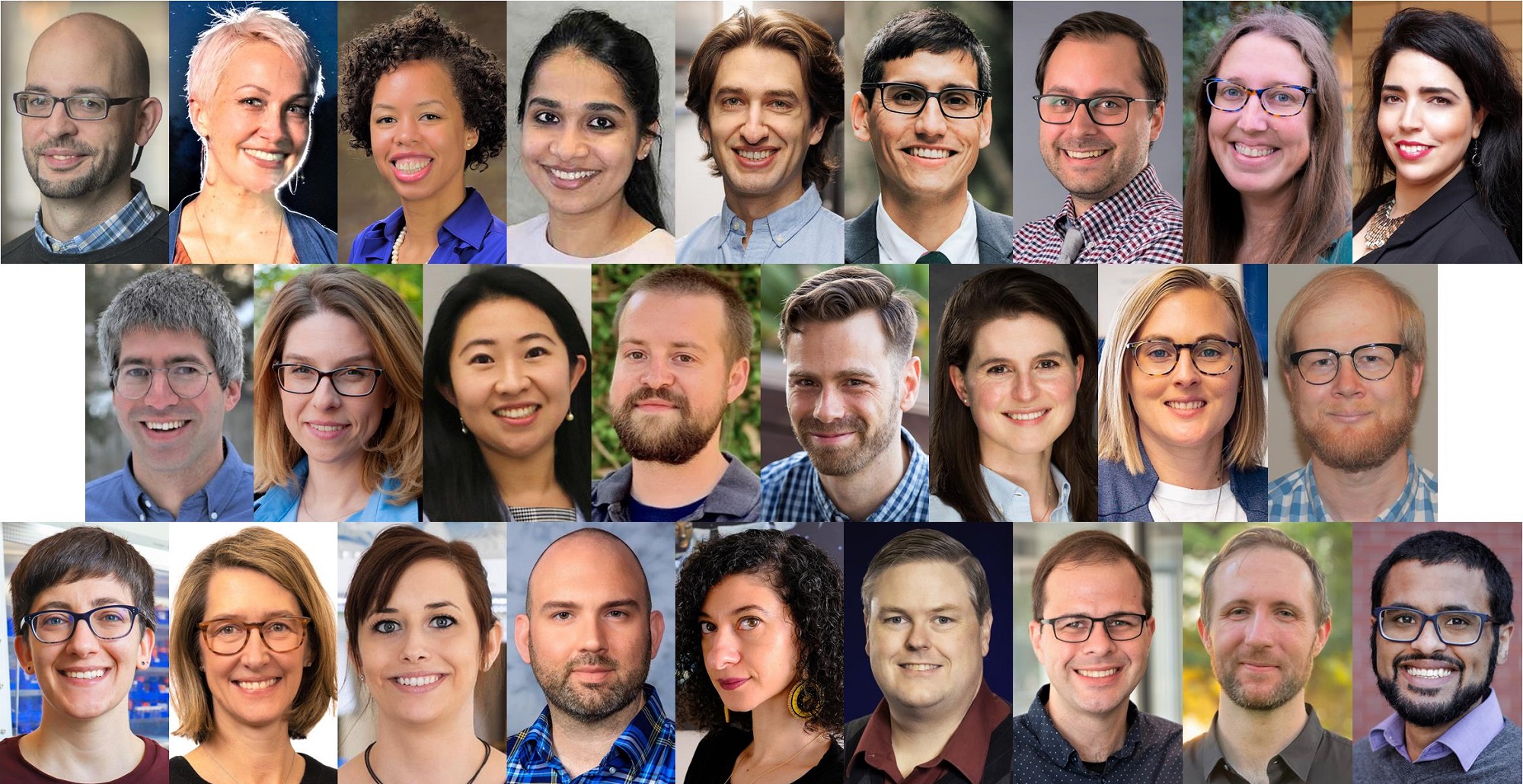RCSA Welcomes 2023 Class of Cottrell Scholars

Research Corporation for Science Advancement, America's first foundation dedicated wholly to science, has named 26 early career scholars in chemistry, physics, and astronomy as recipients of its 2023 Cottrell Scholar Awards. Each awardee receives $100,000.
“The future of science depends on innovation, diversity, and commitment to student success,” said RCSA President & CEO Daniel Linzer. “These new awardees have been selected as much for their research and teaching excellence as for their potential to become change-makers at their institutions, in science, and society at large.”
Cottrell Scholars are chosen through a rigorous peer-review process of applications from public and private research universities and primarily undergraduate institutions across the United States and Canada. Their award proposals incorporate both research and science education.
“It’s always an honor to welcome a new class to the Cottrell Scholar family,” said RCSA Senior Program Director Silvia Ronco. “We look forward to seeing the fresh ideas and energy these outstanding researchers, teachers, and mentors bring to the community, and the impact they will have for decades to come.”
As their careers advance, Cottrell Scholars become eligible to compete for several additional levels of funding through the Cottrell Plus Awards. Scholars meet each July at the annual Cottrell Scholar Conference to network, exchange ideas, and develop collaborative projects with potential national impact. This year’s event is scheduled for July 19-21 in Tucson, Arizona.
This year’s Cottrell Scholars are:
Daniel Anglés-Alcázar, astronomy, University of Connecticut – Multi-Scale Physics of Supermassive Black Hole Growth and Feedback in Galaxies and Fundamental Implications in Cosmology
Sarah Ballard, astronomy, University of Florida – A Window into Day and Night: Constraining Nodal Precession of Temperate Planets Around Small Stars
Cacey Bester, physics, Swarthmore College – Creep Across Scales: The Role of Disturbances on Creep in Disordered Media
Ambika Bhagi-Damodaran, chemistry, University of Minnesota Twin Cities – Reprogramming Hypoxia Signaling in Laboratory and Inorganic Chemistry Education in Classrooms
Matthew Caplan, physics, Illinois State University – Impacts of Central Primordial Black Holes on Stellar Evolution
Javier Duarte, physics, University of California, San Diego – Building a Better Foundation: Teaching Physicists and Machines How to Learn from Data
Christopher Durr, chemistry, Amherst College – Exploring the Synthesis and Mechanism of Single-Site and Cationic Group V Catalysts for the Production of Biodegradable Polymers
Megan Fieser, chemistry, University of Southern California – Controlling the Product Selectivity for the Catalytic Dechlorination of Poly (Vinyl Chloride)
Ronit Freeman, chemistry, University of North Carolina at Chapel Hill – Forming Connections: From Interacting Self-Assembled Hubs to TACtICS (Teaching Convergence to Increase Innovation in Science) for Undergraduates
Graham Giovanetti, physics, Williams College – A Study of Single Electron Backgrounds in a Low-Threshold Argon Detector
Vera Gluscevic, astronomy, University of Southern California – Discovering Dark Matter with Cosmology
Ling Hao, chemistry, George Washington University – Capturing Molecular Communications Using Mass Spectrometry and Enhancing Science Communication in Chemistry Education
Mark Herzik, chemistry, University of California, San Diego – Next-Generation Electron Microscopy – Visualizing Enzymes in Action and Development of Hands-on Curriculum
Mark Ilton, physics, Harvey Mudd College – The Physical Principles Governing High-Rate and Large Deformation Elastic Recoil
Sarah King, chemistry, University of Chicago – Directing Energy and Charge Transfer in Molecular Moiré Materials
Lydia Kisley, physics, Case Western Reserve University – Imaging the Physical Dynamics of Analytes in Commercial Separation Materials and Using Core Facilities in the Classroom
David Leitch, chemistry, University of Victoria – Building Universal Quantitative Models for Catalysis from the Bottom Up, and Building Connections in Undergraduate Organic Chemistry Education
Allegra Liberman-Martin, chemistry, Chapman University – Broadening Applications of the Weakly Coordinating Triflimidate Anion in Main Group Catalysis
Kristen McQuinn, astronomy, Rutgers University – The Smallest Galaxies Hold the Biggest Clues for Understanding Galaxy Formation and Cosmology
Alison Patteson, physics, Syracuse University – Soft Matter Physics of Biofilm Growth: A New Role of Substrate Viscoelasticity in Biofilm Growth
William Pfalzgraff, chemistry, Chatham University – Enhancing Reactivity and Selectivity at Polarized Interfaces
Chanda Prescod-Weinstein, physics, University of New Hampshire – Searching for a Vibrant Dark Sector
Noel Richardson, astronomy, Embry-Riddle Aeronautical University – Massive Binaries Have an Important Impact on Both Their Environments and on Undergraduate Education
Daniel Tabor, chemistry, Texas A&M University – Intelligent Optimization of Organic Photophysical Chemical Spaces
Julian West, chemistry, Rice University – Sustainable Difunctionalization of Alkenes Via Bio-Inspired Radical Ligand Transfer and Training Scientists to Engage with the Greater Public
Christopher Whidbey, chemistry, Seattle University – Illuminating the Dark Proteome: ABPP for High-Throughput Experimental Characterization of Proteins
Since the first class in 1994, the Cottrell Scholar community has become an active, multigenerational and multidisciplinary community of more than 500 awardees from colleges and universities across the United States and Canada.
The awards are named for educator, inventor, and science visionary Frederick Gardner Cottrell, who founded Research Corporation for Science Advancement in 1912.
“Bet on the youngsters,” he once said, advocating support for early stage, high-potential, basic scientific research. “They are long shots but some of them pay off.”
Research Corporation for Science Advancement is a private foundation that funds basic research in the physical sciences (astronomy, chemistry, physics, and related fields) at colleges and universities in the United States and Canada. It creates and supports inclusive communities of early career researchers through two core programs: the Cottrell Scholar Program and Scialog.






